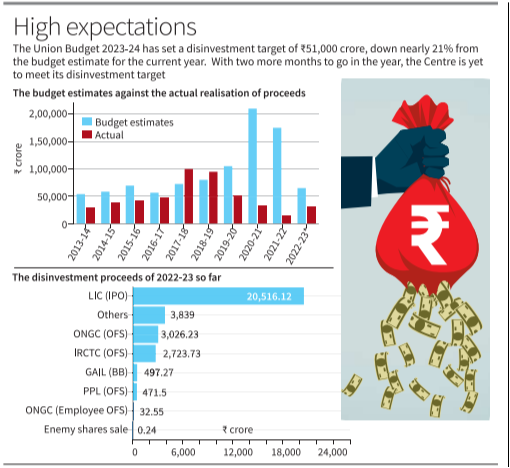In the Union Budget for 2023-24, the government has set a disinvestment target of ₹51,000 crore.
![]() 9 Feb 2023
9 Feb 2023
English
हिन्दी
Context:
In the Union Budget for 2023-24, the government has set a disinvestment target of ₹51,000 crore.
About Disinvestment:
Types of Disinvestment:

Image Source: The Hindu
Need of Disinvestment:
Benefits:
News Source: The Hindu
<div class="new-fform">
</div>